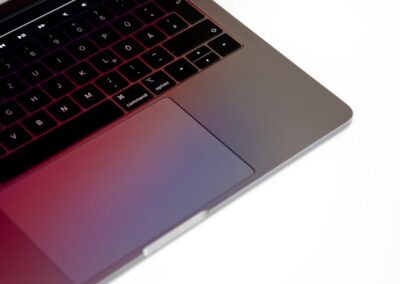Securing Data Exchange in the Age of IoT
The Importance of Privacy-Preserving Data Sharing in IoT Networks
Privacy-preserving data sharing in IoT networks is crucial for ensuring secure and efficient data exchange in an era where interconnected devices are ubiquitous. As smart technologies continue to expand in regions like Saudi Arabia and the UAE, particularly in cities such as Riyadh and Dubai, the volume of data generated by IoT devices is growing exponentially. This data, often sensitive and personal, requires robust protection mechanisms to prevent unauthorized access and misuse. Implementing privacy-preserving protocols is essential for maintaining the integrity and confidentiality of data exchanged within IoT networks.
In Riyadh’s smart city initiatives, for example, IoT devices collect data from various sources such as traffic management systems, environmental sensors, and public safety networks. This data is invaluable for optimizing city operations and enhancing the quality of life for residents. However, the collection and sharing of such vast amounts of data also pose significant privacy risks. Without proper protocols in place, the data could be intercepted or misused, leading to potential breaches of privacy. By adopting privacy-preserving data sharing protocols, cities like Riyadh can protect sensitive information while still leveraging the benefits of IoT technology.
Similarly, in Dubai’s healthcare sector, IoT devices are used to monitor patient health, manage medical records, and facilitate telemedicine services. The data generated in this context is highly sensitive, often involving personal health information (PHI). To ensure that this data is shared securely between healthcare providers, patients, and other stakeholders, privacy-preserving protocols must be implemented. These protocols help maintain patient confidentiality, comply with regulatory requirements, and foster trust between healthcare providers and patients.
Recommended Protocols for Privacy-Preserving Data Sharing
Implementing privacy-preserving data sharing protocols in IoT networks requires careful consideration of the most appropriate methods to ensure data security and privacy. Businesses and organizations in Saudi Arabia and the UAE must select protocols that align with their specific needs while adhering to global best practices for data protection.
One widely recommended protocol is Homomorphic Encryption, which allows data to be encrypted in such a way that computations can be performed on it without decrypting it. This means that data can be processed and shared between IoT devices without exposing it to potential attackers. In Riyadh’s financial services sector, for instance, Homomorphic Encryption can be used to securely share transaction data between banks, payment processors, and regulators without compromising customer privacy. This protocol ensures that sensitive financial information remains protected even as it is analyzed and used for decision-making.
Another effective protocol is Secure Multi-Party Computation (SMPC), which enables multiple parties to jointly compute a function over their inputs while keeping those inputs private. In Dubai’s smart manufacturing industry, where IoT devices are used to monitor production processes and share data across different entities, SMPC can be used to collaboratively analyze data without revealing proprietary information. This ensures that businesses can work together to optimize production and supply chain operations without risking the exposure of sensitive data.
Blockchain technology also offers a promising approach to privacy-preserving data sharing in IoT networks. By using blockchain, data can be shared across a decentralized network in a secure and transparent manner. Each transaction or data exchange is recorded on a digital ledger that is immutable and accessible only to authorized participants. In Riyadh’s energy sector, blockchain can be used to securely share data between energy providers, consumers, and regulators, ensuring transparency and trust in energy distribution and consumption. This technology not only enhances data privacy but also provides a robust framework for auditing and compliance.
Implementing and Managing Privacy-Preserving Protocols in IoT
Strategies for Effective Implementation
To successfully implement privacy-preserving data sharing protocols in IoT networks, businesses and organizations in Saudi Arabia and the UAE must develop comprehensive strategies that integrate these protocols into their existing systems and processes. This requires a multi-faceted approach that includes technical, organizational, and regulatory considerations.
In Dubai’s retail sector, for example, where IoT devices are used to track customer behavior and manage inventory, businesses should start by conducting a thorough assessment of their current data management practices. This assessment should identify potential vulnerabilities and determine which privacy-preserving protocols are best suited to address these risks. Once the appropriate protocols are selected, they should be integrated into the IoT network through a phased approach, allowing businesses to test and refine their implementation while minimizing disruptions to operations.
Another critical aspect of implementation is employee training and awareness. In Riyadh’s public sector, where IoT devices are used to manage municipal services, employees must be trained on the importance of data privacy and the specific protocols being implemented. This training should cover not only the technical aspects of the protocols but also the ethical and legal implications of data sharing. By fostering a culture of privacy awareness, organizations can ensure that their employees are equipped to manage data responsibly and that privacy-preserving protocols are effectively enforced.
Moreover, businesses should establish governance frameworks to oversee the implementation and management of privacy-preserving protocols. In Dubai’s healthcare industry, for instance, a governance framework might include a dedicated data privacy officer responsible for monitoring compliance with privacy regulations and protocols. This framework should also include regular audits and reviews to ensure that the protocols remain effective as the IoT network evolves. By taking a proactive approach to governance, businesses can maintain high standards of data privacy and protect the interests of their stakeholders.
Challenges and Solutions in Privacy-Preserving Data Sharing
While privacy-preserving data sharing protocols offer significant benefits, their implementation is not without challenges. Businesses in Saudi Arabia and the UAE may encounter technical, operational, and regulatory obstacles that must be addressed to ensure the success of these protocols.
One common challenge is the computational overhead associated with certain privacy-preserving protocols, such as Homomorphic Encryption and SMPC. These protocols often require significant processing power, which can be a constraint in resource-limited IoT environments. To overcome this challenge, businesses in Riyadh’s tech sector can explore hybrid approaches that combine privacy-preserving protocols with traditional encryption methods. This can help balance the need for privacy with the practical limitations of IoT devices.
Another challenge is ensuring interoperability between different IoT devices and systems. In Dubai’s smart transportation network, for example, IoT devices from various manufacturers must be able to communicate and share data securely. To address this, businesses can adopt open standards for privacy-preserving protocols, ensuring that their IoT networks are compatible with a wide range of devices and platforms. By promoting interoperability, businesses can create more cohesive and secure IoT ecosystems.
Regulatory compliance is also a critical concern when implementing privacy-preserving protocols. Businesses in Saudi Arabia and the UAE must ensure that their data sharing practices align with local and international privacy laws. This requires staying up-to-date with the latest regulations and adjusting protocols as needed to maintain compliance. In Riyadh’s financial sector, for example, businesses might need to adapt their privacy-preserving protocols to comply with evolving data protection laws, ensuring that customer data is always handled in accordance with legal requirements.
Conclusion
In conclusion, implementing privacy-preserving data sharing protocols in IoT networks is essential for ensuring secure and ethical data exchange. For businesses and organizations in Saudi Arabia and the UAE, adopting protocols such as Homomorphic Encryption, Secure Multi-Party Computation, and Blockchain can provide robust privacy protections while enabling the full potential of IoT technologies. By developing comprehensive implementation strategies, addressing challenges proactively, and ensuring regulatory compliance, businesses can protect user privacy, build trust, and achieve long-term success in the rapidly evolving IoT landscape.
—
#IoTSecurity, #PrivacyPreservingDataSharing, #DataExchange, #IoTNetworks, #SmartTechnology, #BusinessEfficiency, #SaudiArabia, #UAE, #Riyadh, #Dubai, #AI, #Blockchain, #Metaverse, #ExecutiveCoaching, #GenerativeAI, #Leadership, #Management, #ProjectManagement































